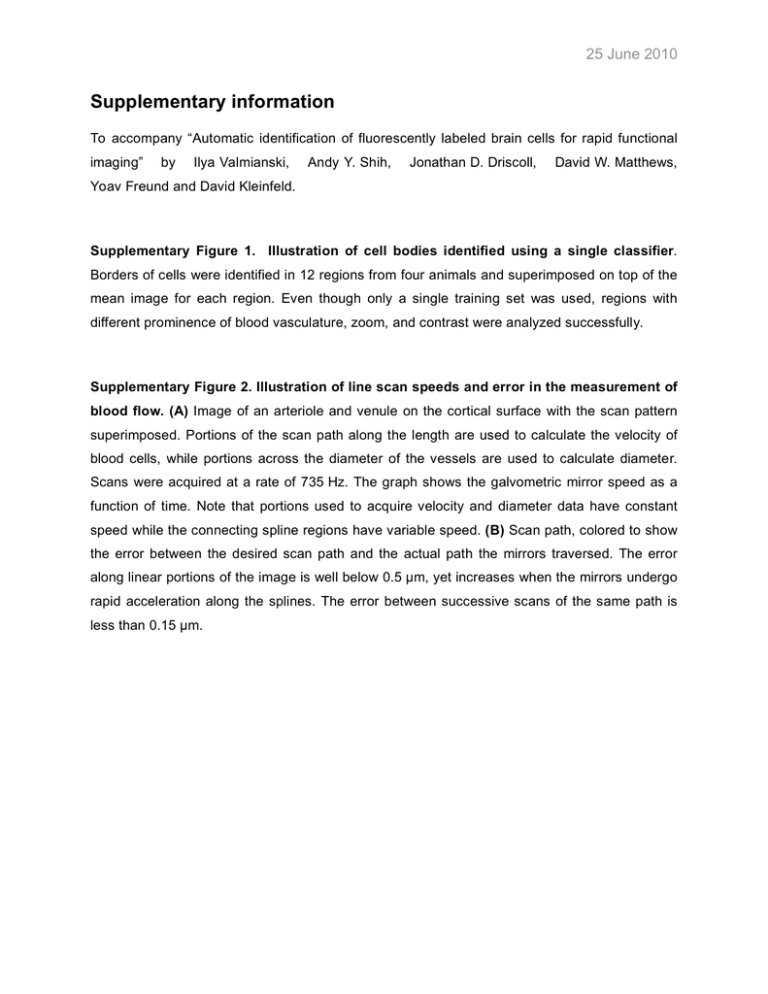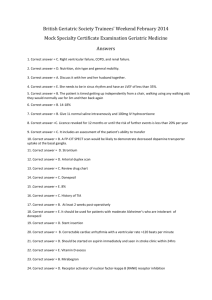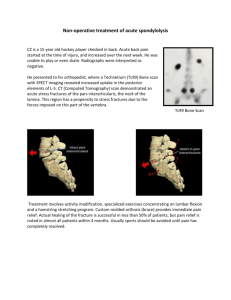Supplementary information 25 June 2010
advertisement

25 June 2010 Supplementary information To accompany “Automatic identification of fluorescently labeled brain cells for rapid functional imaging” by Ilya Valmianski, Andy Y. Shih, Jonathan D. Driscoll, David W. Matthews, Yoav Freund and David Kleinfeld. Supplementary Figure 1. Illustration of cell bodies identified using a single classifier. Borders of cells were identified in 12 regions from four animals and superimposed on top of the mean image for each region. Even though only a single training set was used, regions with different prominence of blood vasculature, zoom, and contrast were analyzed successfully. Supplementary Figure 2. Illustration of line scan speeds and error in the measurement of blood flow. (A) Image of an arteriole and venule on the cortical surface with the scan pattern superimposed. Portions of the scan path along the length are used to calculate the velocity of blood cells, while portions across the diameter of the vessels are used to calculate diameter. Scans were acquired at a rate of 735 Hz. The graph shows the galvometric mirror speed as a function of time. Note that portions used to acquire velocity and diameter data have constant speed while the connecting spline regions have variable speed. (B) Scan path, colored to show the error between the desired scan path and the actual path the mirrors traversed. The error along linear portions of the image is well below 0.5 µm, yet increases when the mirrors undergo rapid acceleration along the splines. The error between successive scans of the same path is less than 0.15 µm. Classifier (trained once) Example segmentation of experimental data (3 animals) 50 µm 50 mm 50 µm 50 µm 50 µm Supplemental Figure 1. Valmianski, Shih, Driscoll, Matthews, Freund and Kleinfeld Art Ven ule erio le A 50 µm Diameter Scan path Path speed (µm/µs) Velocity Diameter Velocity 1.2 0 B linear scan (ROIs) high acceleration Scan error (µm) 0 1 2 3 4 5 Supplemental Figure 2. Valmianski, Shih, Driscoll, Matthews, Freund and Kleinfeld





